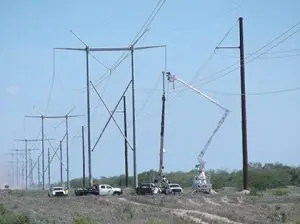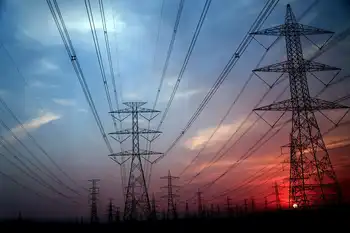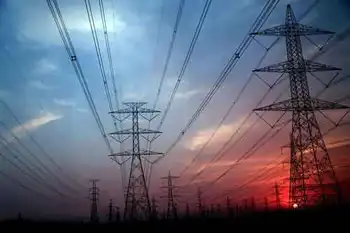Powering Ontario's Growth accelerates clean electricity, pairing solar, wind, and hydro with energy storage, efficiency investments, and new nuclear, including SMRs, to meet rising demand and net-zero goals while addressing supply planning across the province.
Key Points
Ontario's clean energy plan adds renewables, storage, efficiency, and nuclear to meet rising electricity demand.
✅ Over $1B for energy-efficiency programs through 2030+
✅ Largest clean power procurement in Canadian history
✅ Mix of solar, wind, hydro, storage, nuclear, and SMRs
Energy Minister Todd Smith has announced a new plan that outlines the actions the government is taking to address the province's growing demand for electricity.
The government is investing over a billion dollars in "energy-efficiency programs" through 2030 and beyond, Smith said in Windsor.
Experts at Ontario's Independent Electricity System recommended the planning start early to meet demand they predict will require the province to be able to generate 88,000 megawatts (MW) in 20 years.
"That means all of our current supply ... would need to double to meet the anticipated demand by 2050," he said during the announcement.
"While we may not need to start building today, government and those in the energy sector need to start planning immediately, so we have new clean, zero emissions projects ready to go when we need them."
The project is called Powering Ontario's Growth and will advance new clean energy generation from a number of sources, including solar, hydroelectric and wind.
He said this would be the biggest acquisition of clean energy in Canada's history.
Smith made the announcement at Hydro One's Keith Transmission Station.
He said the new planned procurement of green power will pair well with recent energy storage procurements, so that power generated by solar panels, for example, can be stored and injected into the system when needed.
NDP Opposition Leader Marit Stiles said Monday's announcement lacks specifics.
"It's light on details, including key questions of cost, climate impact, waste management and financial risk," said Stiles.
"Ford's Conservatives should be playing catch-up after undermining clean energy in their first term. Instead, they're offering generalities and a vague sense of what they might do."
The Green Party criticized the move Monday afternoon, noting that clean, affordable electricity remains a key Ontario election issue today.
"Ontario is facing an energy crunch – and the Ford government is making it worse by choosing more expensive, dirtier options," said MPP for Guelph Mike Schreiner in the statement.
He said Premier Doug Ford has "grossly" mismanaged the province's energy supply by cancelling 750 renewable energy projects and slashing efficiency programs.
"Now, faced with an opportunity to become a leader in a world that's rapidly embracing renewable energy, this government has chosen to funnel taxpayer dollars into polluting fossil gas plants and expensive new nuclear that will take decades to come online," said Schreiner.
Smith announced last week the plan for three more small modular reactors at the site of the Darlington nuclear power plant. The province also shared its intention to add a third nuclear generating station to Bruce Power near Kincardine.
"With this backwards approach, the Ford government is squandering a once-in-a-generation opportunity to make Ontario a global leader in attracting investment dollars and creating better jobs in the trillion-dollar clean energy sector," said Schreiner.
Related News












